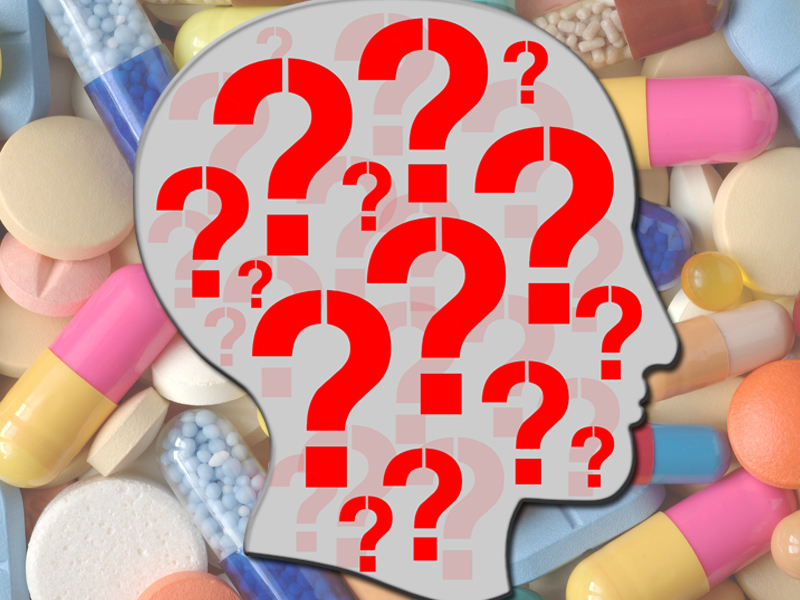Get Easy Health Digest™ in your inbox and don’t miss a thing when you subscribe today. Plus, get the free bonus report, Mother Nature’s Tips, Tricks and Remedies for Cholesterol, Blood Pressure & Blood Sugar as my way of saying welcome to the community!
A basic mineral could determine if you get dementia or not

Does the idea of getting dementia and losing both your independence and your memories leave you in a cold sweat?
If so, there’s no time to waste, considering that Alzheimer’s can be in the works for as long as 20 years before you notice anything is going awry.
The good news is that losing your memory is NOT a natural part of aging and there are things you can do to preserve your brain’s function and all of your precious memories, like maintaining a healthy weight and getting enough exercise.
And, a new study published in the journal of the American Academy of Neurology, is shedding on light on one more tool you can use in the battle against dementia and cognitive decline…
It’s not a fancy supplement or exotic spice… just a common mineral that you could be missing from your diet.
Not too high, not too low, but just right
The study involved 9,569 people with an average age of 65 who did not have dementia and whose blood was tested for magnesium levels. The participants were followed for an average of eight years. During that time, 823 people were diagnosed with dementia. Of those, 662 people had Alzheimer’s disease.
The participants were divided into five groups based on their magnesium levels.
The researchers found that both those with the highest and the lowest levels of magnesium had an increased risk of dementia, compared to those in the middle group.
In fact, both the low and high groups were about 30% more likely to develop dementia than those in the middle group.
And, these results were the same after researchers adjusted for all other factors that could affect the risk of dementia other than magnesium levels, such as body mass index, smoking status, alcohol use and kidney function.
So, it looks like the Goldilocks factor is at work again…
In order to avoid dementia, you need to get enough magnesium but not too much.
How to optimize your magnesium levels
Magnesium deficiency is fairly common in our modern world and you could easily be a victim.
Everything from a poor diet to stress and prescription drugs can result in a deficiency and leave you at risk for dementia.
In fact, research shows that only about 25% of US adults are getting the recommended daily amount of 310 to 320 milligrams for women and 400 to 420 for men.
Magnesium is a mineral used by every organ in your body, especially your heart, muscles, and kidneys. So, if you suffer from unexplained fatigue or weakness, abnormal heart rhythms or even muscle spasms and eye twitches, low levels of magnesium could be to blame.
The best way to raise your magnesium levels without getting too much is to include magnesium-rich foods in your diet.
These include:
- Spinach – 1 cup cooked: 157 milligrams
- Swiss Chard – 1 cup cooked: 150 milligrams
- Black Beans – 1 cup cooked: 120 milligrams
- Almonds – ¼ cup: 97 milligrams
- Cashews – ¼ cup: 91 milligrams
- Pumpkin Seeds – 1/4 cup: 42 milligrams
- Avocado – 1 raw: 39 milligrams
- Bananas – 1 banana: 37 milligrams
- Broccoli – 1 cup cooked: 32 milligrams
- Brussels Sprouts – 1 cup cooked: 32 milligrams
With these numbers, it’s easy to see how quickly you can get the magnesium you need each day from the foods you eat.
If you do decide to take a magnesium supplement, magnesium glycinate provides a highly absorbable form without the laxative effects that can come with some other magnesium supplements.
So, to decrease your risk of dementia and Alzheimer’s, follow Goldilock’s rule when it comes to magnesium – not too high, not too low, but just right.
Editor’s note: While you’re doing all the right things to protect your brain as you age, make sure you don’t make the mistake 38 million Americans do every day — by taking a drug that robs them of an essential brain nutrient! Click here to discover the truth about the Cholesterol Super-Brain!
Sources:
- Both high, low levels of magnesium in blood linked to risk of dementia — American Academy of Neurology
- Magnesium, an invisible deficiency that could be harming your health — CNN Cable News Network














